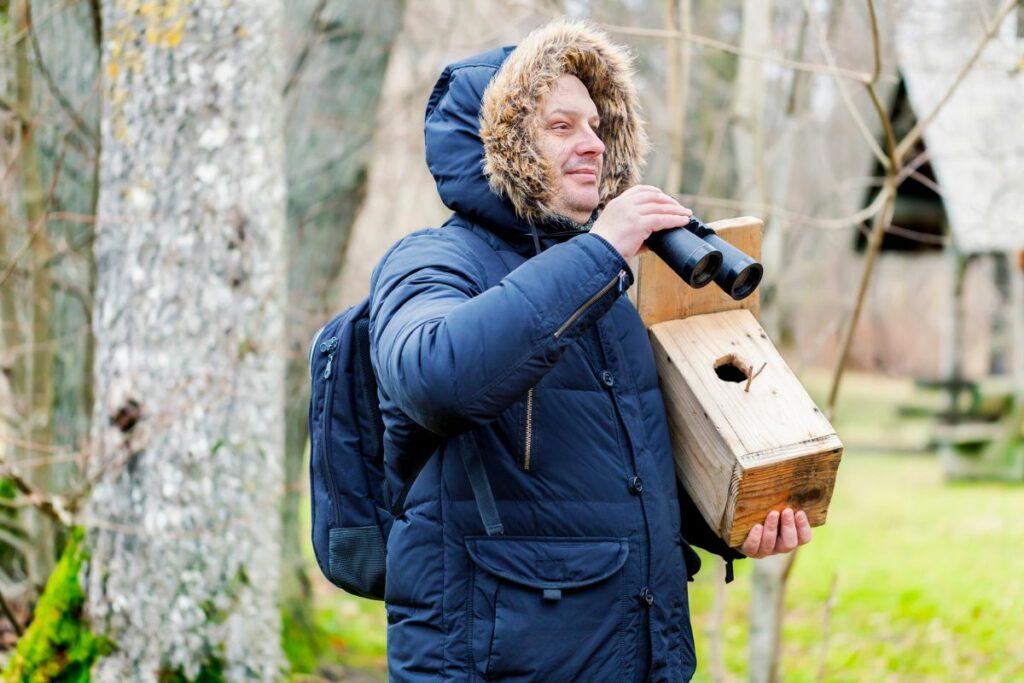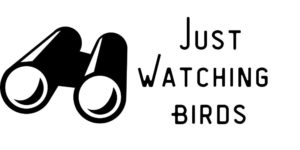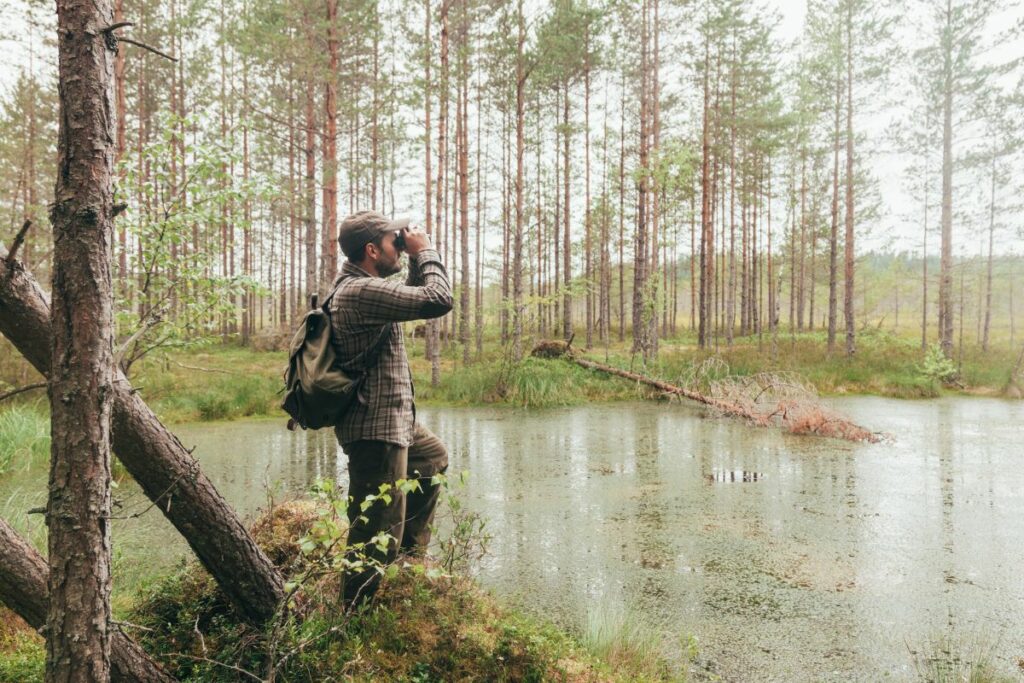As an Amazon Associate, we earn from qualifying purchases with no additional costs for you.
Bird watchers are people who enjoy looking for and identifying birds while out in nature. There are some funny names that are sometimes used to refer to bird watchers.
Names and types of bird watchers include walkers, sit-and-waiters, drive-and-birders, social birders, photogs, birders, listers, and twitchers. Funny names for bird watchers include bird nerds and bird dudes.
There are different terms that are used to refer to people who like bird watching. The general term is bird watcher, but they may also be called birders, bird conservationists, ornithologists, bird nerds, dudes, photo birders, twitchers, and listers.
TIP: If you want to check out the best pair of binoculars for bird watching, we recommend a pair of waterproof and fog-proof 8 x 42 binoculars like the Celestron – Outland X 8×42 Binoculars (Amazon link).
What Are Bird Watchers Called?
There are various terms that are used to name bird watchers. The most general term is bird watcher, but people have been called birders, twitchers, listers, and even photo birders. There are also more informal terms like dude and bird nerd. Scientific bird watchers are known as ornithologists.
Amateur bird watchers are those who are just beginning in the hobby and often start off learning the common birds in their backyard. Anyone can begin birding at any age, so whether you are a child or an adult, it is a worthwhile activity to take up.
What Do Bird Watchers Call Themselves?
It can vary from person to person as to what bird watchers call themselves. I call myself a birder, and I am a more relaxed bird watcher compared to a lister or twitcher.
I am not too worried about listing or twitching, but I know a lot, having bird watched for many years now. I have spent money on binoculars and visiting various bird sites.
I have also been bird watching since 1982, so I have many years of experience in the hobby. I enjoy watching bird behavior and learning how birds interact with their own and other species.
Listers And Twitchers
Other bird watchers may seriously call themselves listers because their hobby is to add to their list of species.
Twitchers are also concerned with listing but are even more concerned with finding rare or vagrant bird species. Twitchers can show up in large numbers when a rare bird is seen somewhere.
Conservationists
There are still those who are concerned with conservation and regard themselves more as bird conservationists, looking for ways to protect birds. Bird conservationists may become involved in captive breeding programs of endangered species, such as the case with the California Condor.
Captive breeding programs can take place in zoos and animal sanctuaries. In South Africa, the African Raptor Center has begun a captive breeding program for the endangered Bearded Vulture.
What Is A Bird Expert Called?

The term to use for a bird expert should probably be ornithologist, but it depends on what we mean by expert. An expert bird watcher is also highly skilled and may be called a bird expert.
In terms of scientific study, an ornithologist is the correct term for a bird expert. Ornithologists have university degrees, have studied birds, and know almost every aspect of bird biology. These are the people who often later choose to study a particular type of bird, usually one species.
An ornithologist may focus their attention on endangered species of birds in attempts to find ways to help conserve and protect the species in the face of threats. Ornithologists provide insight into bird biology and help conservation managers in their efforts to preserve endangered and other bird species.
There are some steps you can take to make studying birds your career. People who become ornithologists may get a job at a museum, university, conservation society, or wildlife park where they are paid for their work.
Still, other ornithologists may work on oceanic species, which requires going out on boats and visiting islands where such birds nest. Ornithologists can be found on every continent, and they may even visit Antarctica to study the penguin colonies.
How Do You Become An Ornithologist?
If you are interested in becoming an ornithologist, you should take mathematics and science courses in school. It would make sense to take a life sciences or biology course as one of your science classes.
You may even be able to find AP classes in biology, zoology, or life sciences. Joining a bird club is also a good idea to start the process of learning about birds.
Ornithology as a career requires you to have a university degree. At a minimum, an ornithologist should have a bachelor’s degree in science focused on wildlife biology or conservation, preferably with ornithology coursework.
It is a good idea to contact experts who are already in the field; these experts can give you some insight into what is involved in the job and help you decide if this is what you want.
Postgraduate degrees in Ornithology include master’s and doctorates. A Ph.D. degree will require advanced and original research into some aspect of ornithology.
Funny (Slang) Names For Bird Watchers
Bird nerd and dude are probably the two slang terms used by nonbirders to refer to bird watchers. Although some people use twitcher as a slang term to refer to bird watchers, it is actually used as a serious term in the birding community and refers to people who want to see rare birds.
There are a few rules or guidelines you should abide by as an ethical birder. These are listed below.
- Do not enter private lands without prior permission from landowners.
- Follow all the rules in refuges and reserves, including cleaning up any garbage from your campsite.
- Do not disturb birds on nests.
- Do not use apps and play songs to call up birds when they are hungry, tired, and breeding during spring and summer.
Types Of Bird Watchers
We can divide bird watchers in various ways, based on the approach they take to bird watching and what their main reasons for doing the hobby are. We can even categorize bird watchers in an organized birding trip based on some of the behaviors and goals they have.
We get bird watchers who are:
- Walkers: These folks like to walk continuously, and bird watch along the way. The idea is that the more distance they cover, the more birds they will see. This may or may not be true depending on what habitats they traverse and the time of day.
- Sit-and-waiters: These are the birders that prefer to sit in one place and wait for the birds to come to them. This approach can be very successful but takes a lot of patience. This may be a necessary approach for seeing elusive birds like rails and flufftails and may work best if you are on your own since other people may become bored.
- Drive and bird: These are people who like to bird watch from the car and will be seen suddenly pulling over and grabbing binoculars to look for some bird they have seen or heard along the way.
- Social birders: the birders that bird watch to meet other people; they treat a bird watching trip more as a social event than trying to see a lot of new birds and are the people who spend a lot of time chatting with others while bird watching.
- Photogs: These are the bird photographers. These people show up on the morning of the trip carrying camera equipment. Their aim is to get good photos of the birds they see on the trip. Photogs will walk but also may actually prefer to sit in a bird hide where the odds of getting good photos are higher. It takes a lot of patience and many attempts to get a decent photo of a bird.
- Birders: These are bird watchers who are very knowledgeable about birds and often know the calls and habits of various species. They are not as concerned with lists as the next group but do have extensive knowledge that is more than the usual bird watcher. They often lead the bird group when there is an organized field trip and are able to teach people on the trip about the birds they are seeing.
- Listers: These are the birders concerned with their list and counting how many unique species they see. Listers really focus on the numbers they are seeing and will often engage in birding competitions.
- Twitchers: Twitchers are similar to listers, but the prime interest of twitchers is in catching sight of the rare or vagrant species that turn up unexpectedly.
It is important to note that none of the types of bird watchers above are bad in any way; it is simply different approaches that are taken, which are based on the different reasons people join bird clubs.
An organized bird trip will often have all these types of bird watchers and approaches present, making for an interesting and very worthwhile experience.
Audubon bird sanctuaries in the United States often accommodate all types of bird watchers and are designed with walking trails, bird hides, and places to sit and wait.
You can find people walking around all day while others will be sitting and waiting, and still others will be carrying telephoto lenses for taking photographs of birds they see.
Conclusion
There are different names that bird watchers are called both by the general public and by the bird watchers themselves. There are several different goals that people have when bird watching, which is also why we have various names for bird watchers.
Regardless of what type of bird watcher you are, it is always a worthwhile adventure and fun time to go out and bird watch.
TIP: Knowing how to spot the birds in your yard is key to enjoying visits from your winged friends as much as possible! The best sources are trusted books, I recommend using the following (Amazon links):
– National Geographic Field Guide to the Birds of North America
– National Audubon Society Birds of North America



